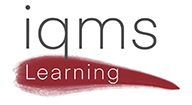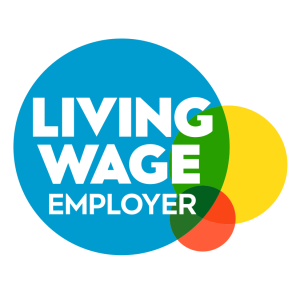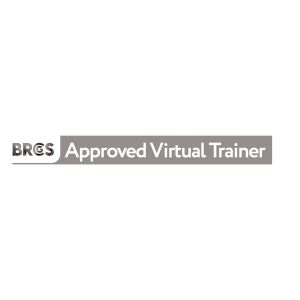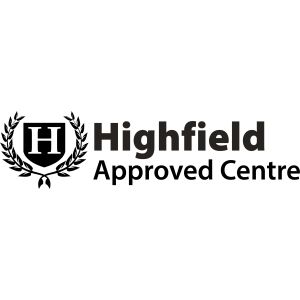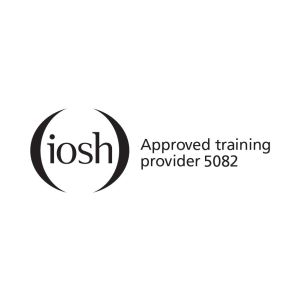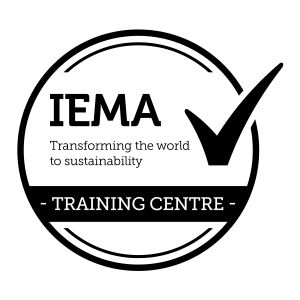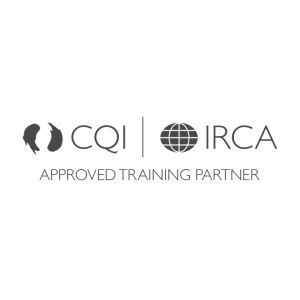The IEMA Environmental Sustainability Skills for the Workforce course is a one-day awareness course developed to upskill all workers with an elemental understanding of environmental sustainability principles. Relevant to any job role across all sectors this course will help to embed environmental cultural change into an organisation. Those businesses seeking to refresh environmental management within their business and looking for true value from ISO 14001, achieve their environmental goals and actively change their culture will value the support this course delivers. The course covers the main environmental risks and opportunities facing organisations; the importance of resource efficiency; the impacts of pollution, prevention, control and legislation; the impact of transport; and knowing how employees can support environmental sustainability.Duration1 Day, 08.30 – 16.45Who should attend?This course is ideally suited for those working in any job role across all sectors and has no formal entry requirements. It is benchmarked against the Level 2 RQF descriptors. This is an ideal course for those developing into the role of, or existing, designated environmental champions in the workforce.Course objectivesThis course will equip delegates with an understanding of some of the key concepts of sustainability in business and will develop relevant skills to be able to support sustainable development within their own business.Course content Develop an understanding of the main environmental and economic risks and opportunities Develop an understanding of compliance obligations and business drivers for change Develop an understanding of the main potential impacts on environment and sustainability Develop an understanding of how to improve environmental performance What are the benefitsAttendance will enable delegates to: Understand the key concepts and benefits of a sustainable business Support the application and development of sustainability in their own business Be able to promote, build and support sustainability within their business In-House CoursesOffering better value for money, they can be designed to more closely match your specific requirementsStyle of Delivery and Course LeadersOur course leaders have substantial experience in the field of environmental management systems. They are qualified and experienced with extensive practical management experience across a wide range of sectors including manufacturing, finance, pharmaceuticals, local and national government. We have extensive experience working across cultural boundaries, through our work in Europe, Africa, the Middle East, Asia and the Americas.CertificationThe assessment for Environmental Sustainability Skills for the Workforce consists of an online 20 question multiple-choice test. The test is completed through the IEMA assessment portal and candidates are sent a link upon registration to the assessment. Delegates successfully taking the course and passing the course assessment will be awarded an IEMA Sustainable Skills for the Workforce certificate.
Foundation Courses
With increasing complexity and demands of organisational processes there is a pressing need to ensure operational efficiency never drops. When it does, or where faults occur, it is critical that staff are equipped with the skills to investigate, determine cause(s) of the error and point to a solution. This investigation must be robust and always conducted in a time sensitive environment. Root Cause Analysis is an investigation process within the field of ISO Standards Management Systems such as ISO 9001 (Quality), ISO 14001 (Environmental) and ISO 45001 (Health & Safety) for example. This course will equip delegates with the knowledge, practical methods and skills to use RCA effectively in a variety of fault-finding applications.Duration1 Day, 09.00 – 17.00Who should attend?Routed in industry, RCA techniques are now commonplace in both product and service environments. Those with a responsibility in process efficiency at any level will benefit from understanding a range of proven methodologies used to conduct a robust root cause investigations and analyses to drive change and improve performance.Course contentThis course covers a range of RCA techniques and skills and uses a complex Case Study featuring an organisation which has established an Integrated Management System. The Case Study facilitates your Root Cause investigations to be conducted with a Quality, Environmental or Health & Safety focus as your investigation and learning brief demands. The course will cover; RCA Process What is Root Cause Analysis (RCA)? What are the steps involved in an RCA process? What methodologies are used within RCA? What are various types of causes? What are best practice guidelines when performing an RCA? What are pitfalls of RCA that you need to be aware of? 5 Whys What is the 5 Whys technique? What is the 5Ws1H technique? How can you use these for RCA? Questioning Skills How can you use a structured approach to make sure you ask the right questions? How to use this structured approach to make sure you ask a diverse set of questions about all potentially involved areas and processes? Evaluating Impact of Change and Decisions How to look forward to evaluate the impact of a change or a new decision on the current state? How to use this forward-looking approach systematically and correctly to get meaningful results? Cause and Effect Diagrams What is a cause-and-effect diagram? What is a fishbone diagram? How can you use this technique to search for root causes? Appreciation Technique What is appreciation technique? Often referred to as the “So What” approach used to consider the consequence of an upcoming change? Pareto Analysis What is Pareto principle? How can you use the Pareto Principle to prioritise your RCA approach systematically to avoid misdirecting resources and wasting time and money focusing on the wrong issues? Impact Analysis What is impact analysis? How can you use a powerful matrix to evaluate and focus on high-risk areas first? What are the 5 steps involved in an impact analysis? What are the benefitsConfident in Root Cause Analysis, those trained will be equipped to plan an investigation, prioritise time, question effectively, understand the relationship between cause and effect and apply risk-based thinking to identify suitable solutions.In-House CoursesOffering better value for money, they can be designed to closely match your specific requirements.Style of Delivery and Course LeadersOur course tutors are approved training providers, approved by BRCGS, CQI and IRCA, IEMA and Highfields Qualifications. They are qualified and experienced with extensive practical knowledge across a wide range of industrial, technical, product and service and commercial sectors.CertificationAll delegates will be awarded a certificate verifying attendance and satisfactory completion of the course.
A one-day awareness course designed to provide attendees with an introduction to environmental management systems based on the requirements of the ISO 14001:2015 standard and how this standard can be used to develop and improve an environmental management system. In the past, some companies may have seen environmental management as a luxury that they could ill afford but things are changing. Legislation designed to protect the environment has steadily increased and many customers use environmental performance as a key selection criteria when awarding contracts. This means that a systematic approach to environmental management can often make good commercial and financial sense.Duration1 Day, 08.30-16.45Who should attend?Decision-makers and managers at all levels, need to understand the fundamentals and practical implementation requirements of an effective Environmental Management System (EMS). Environmental Managers or those with responsibility for maintaining an existing EMS to a recognised standard will also find this course very useful. Also useful to anyone who needs an introduction to environmental management or those wishing to attend the registered 2-day auditor course without prior experience of environmental management systems.Course objectivesThis course will equip delegates with an understanding of the development and application of environmental management techniques and how the ISO 14001:2015 standard is interpreted and implemented. On completion of the course we expect delegates to be able to: Describe the purpose of an environmental management system Explain the purpose, content and interrelationships of ISO 14001, ISO 14004, and EMAS Interpret the specific requirements of ISO 14001 in the context of an effectively implemented environmental management system Course content Benefits of an effective EMS to businesses Essential environmental terminology and familiarisation with ISO 14001 definitions Purpose and intent of an environmental management system Environmental issues and how to assess and determine environmental aspects and impacts Understanding organizational context and a risk-based approach Summary of key environmental legislation and relevance of legislation to an EMS Structure and key requirements of ISO 14001 Setting environmental objectives Continual improvement process for an EMS Monitoring, measurement and analysis What are the benefitsAttendance will enable delegates to: Decide how best to develop the Environmental Management Systems of their organisation and avoid common problems Add to their environmental management career credentials Understand the relevance of environmental standards to their organisation Improve environmental decision-making Demonstrate the competitive benefits of environmental management standards to their own and other organisations In-House CoursesOffering better value for money, they can be designed to closely match your specific requirements.Style of Delivery and Course LeadersOur course leaders have extensive experience in Management across a wide range of sectors including manufacturing, service and professional organisations including Local, National and International Government. This wide experience enables them to make the course more interesting by using their relevant examples and case studies during workshop discussions. Our team of staff has extensive experience of working across cultural boundaries, through their work in Europe, Africa, the Middle East, Asia and the Americas.CertificationDelegates successfully completing the course will be awarded a CQI and IRCA Certified training accredited certificate. (2353).
This intensive one-day course is designed to equip delegates with an appreciation and understanding of the legislative structure across the UK, key areas of environmental legislation and regulations and how these are typically enforced. No company or organisation can afford to neglect the law, but many companies still do not realise the full extent of their obligations under environmental legislation. Lack of knowledge is no protection for either a company or an individual. This course is essential for those companies who are in the process of setting up an ISO 14001 or EMAS certified environmental management system and needing to build a Legal Register and need some guidance.Duration1 Day, 09.00 – 16.30Who should attend?This course is recommended for individuals with key environmental management responsibilities, particularly those seeking or maintaining certification against the ISO 14001 standard. It is also suitable for senior managers and directors and environmental auditors, in fact anyone seeking to increase their environmental legislative knowledge.Course objectivesThis course aims to provide an understanding of environmental legislation and the enforcement process for business.Course content Principles of environmental legislation European and International influences on Environmental Law The Environmental Protection Act and an overview of key legal instruments covering: Pollution Prevention and Control Air Quality Noise and nuisance Waste Management Producer Responsibility – packaging, WEEE Water Pollution Oil storage Contaminated Land Wildlife & Countryside What are the benefitsOn successful completion, delegates will have improved their knowledge of environmental legislation and requirements, improved confidence in the extent of compliance of their own systems and be able to identify any current weaknesses in their management of environmental legislation.Style of Delivery and Course LeadersOur course leaders have substantial experience in the field of environmental management and pollution control. They are qualified and experienced with extensive practical management experience across a wide range of sectors including manufacturing, finance, pharmaceuticals, local and national government. We have extensive experience working across cultural boundaries, through our work in Europe, Africa, the Middle East, Asia and the Americas.CertificationAll delegates will be awarded a certificate verifying attendance and completion of the course.
A one-day CQI and IRCA Certified training awareness programme for those requiring an introduction to the ISO 9001:2015 standard and how it can be used to develop and improve quality management systems. This foundation course gives an introduction to the most widely used standard for Quality Management in the world. Creation of a successful quality system relies on more than reading the text in the standard; it demands an understanding of requirements and a considered application of the standard to the organisation. This course will provide delegates with an insight into the important world of quality standards, their development and the certification process.Duration1 Day, 09.00 – 17.00Who should attend?Specially designed for managers, supervisors, those with potential quality roles or anyone wishing to understand and assess the impact and relevance of quality management to their organisations. Also useful to anyone who needs an introduction to quality assurance or those wishing to attend the CQI and IRCA Certified training 2-day auditor course without prior experience of quality systems.Course objectivesThis course will equip delegates with an understanding of the development and application of Quality Management techniques and how the ISO 9001:2015 standard is interpreted and implemented. On completion of the course we expect delegates to be able to: Describe the purpose of a quality management system with relevance to the 7 principles of quality management Explain the purpose, content and interrelationships of ISO 9000, ISO 9001, and ISO 9004 Interpret the requirements of ISO 9001 in the context of an effectively implemented business management system Course content Background to Quality Assurance Setting quality objectives The ISO 9001:2015 series standards Measurement and analysis Process Approach Continual improvement The 7 quality management principles Organisational Context ISO 9001 clause requirements Risk based thinking What are the benefitsAttendance will enable delegates to: Decide how best to develop the Quality Management Systems of their organisation Add to their quality management career credentials Understand the relevance of quality standards to their organisation Be able to set quality objectives. Demonstrate the competitive benefits of quality standards to their own and other organisations In-House CoursesOffering better value for money, they can be designed to closely match your specific requirements.Style of Delivery and Course LeadersOur course leaders have extensive experience in Quality Management across a wide range of sectors including manufacturing, service and professional organisations including Local, National and International Government. This wide experience enables them to make the course more interesting by using their relevant examples and case studies during workshop discussions. Our team of staff has extensive experience of working across cultural boundaries, through their work in Europe, Africa, the Middle East, Asia and the Americas.Certification Delegates successfully completing the course will be awarded a CQI and IRCA Certified training accredited certificate. (2350).
This one-day CQI and IRCA certified training course is for those wanting an introduction to the new international occupational health and safety management system (OHSMS) standard ISO 45001:2018 and to understand how it can be used to develop, maintain and improve your health and safety performance. Knowledge and understanding of ISO 45001:2018 is more than simply reading the standard’s text. It demands an understanding of the requirements and a considered application of the standard to the organisation. After this course, you will have sufficient insight to be able to evaluate your own organisation’s arrangements and identify how they can be improved.Duration1 Day, 08:30 – 17:00Who should attend?This course is designed for those needing an introduction to OHSMS and is a pre-requisite for those wishing to attend the CQI and IRCA certified OHSMS Internal Auditor or Lead Auditor course. It is ideal for managers, supervisors, health and safety representatives, OH&S consultants and those with health and safety management responsibilities or anyone wishing to understand the impact and relevance of ISO 45001:2018 to their organisations.Course objectivesThis course will equip delegates with an understanding of the development and application of OHSMS techniques and how the ISO 45001:2018 standard is interpreted and implemented. On completion of the course delegates will be able to: Understand the purpose and business benefits of an OHSMS Outline the structure and content of ISO 45001 and its relationship with Annex SL Interpret the requirements of ISO 45001 in the context of an effective OHSMS Course content Occupational Health and Safety Management Systems (OHSMS) – introduction and key OHS concepts OHSMS based on ISO 45001:2018 including the Process Approach Key ISO 45001 requirements Organisational context OH&S Policy and Planning Risks and opportunities to the OHSMS Hazard identification and elimination and controls, operation, performance evaluation and improvement ISO 45001:2018 requirements including; worker needs, interests and participation as well as interested parties Continual improvement of an OHSMS What are the benefitsAttendance will enable delegates to: Decide how best to develop the OHSMS of their organisation and avoid common problems Add to their occupational health and safety management career credentials Understand the relevance of OHSMS standards to their organisation Improve OHS decision-making Demonstrate the competitive benefits of OHSMS standards to their own and other organisations In-House CoursesOffering better value for money, they can be designed to closely match your specific requirements.Style of Delivery and Course LeadersOur course leaders have extensive experience across a wide range of sectors including manufacturing, service and professional organisations including Local, National and International Government. This wide experience enables them to make the course more interesting by using their relevant examples and case studies during workshop discussions. Our team of staff has extensive experience of working across cultural boundaries, through their work in Europe, Africa, the Middle East, Asia and the Americas.Certification Delegates successfully completing the course will be awarded a CQI and IRCA Certified training accredited certificate. (2336).
This three-day IOSH Managing Safely course is a risk management course designed to provide supervisors and managers with a step-by-step approach to managing health and safety and supporting their staff. This course is invaluable in giving managers at all levels the confidence to understand and apply knowledge, understand their responsibilities and be a force for cultural change in the workplace. Managers and supervisors will learn how to perform OHS risk assessment and control OHS risk and understand and perform incident investigations. It ensures managers understand their role and responsibilities for driving occupational health and safety standards in their organisation and can assess and measure their own performance.Duration3 days, 8.30-17.00Who should attend?This course is ideally suited for supervisors and managers across all sectors and has no formal entry requirements.Course objectivesThis course will equip delegates with knowledge of the key concepts and building blocks of occupational health and safety in the workplace and develop skills and tools to improve and drive health and safety culture within their own business.Course content Introducing managing safely Assessing risks Controlling risks Understanding responsibilities Understanding hazards Investigating incidents Measuring performance What are the benefitsAttendance will enable delegates to: Be able to assess and control risks and hazards Understand their responsibilities for safety and health Be able to investigate incidents and contribute to investigation teams Be able to reflect and measure their own performance Be able to consider and reflect on good practice In-House CoursesCourses can be adapted to closely match your own organisational specific requirements including flexibility in course delivery.Style of Delivery and Course LeadersThe public version of this course is currently delivered remotely on Zoom. Our course leaders have extensive experience in occupational health and safety management systems across a wide range of sectors including manufacturing, service and professional organisations and both in Local and National government. We have extensive experience working across cultural boundaries, through our work in Europe, Africa, the Middle East, Asia and the Americas.CertificationThe assessment for the IOSH Managing Safely course comprises 30 multiple-choice and short answer questions and a post course short practical assignment (completing a workplace risk assessment). Delegates successfully taking the course and passing the course assessment will be awarded an IOSH Managing Safely issued certificate.
This integrated management systems internal auditor programme combines the disciplines of environmental and health & safety management auditing based on the ISO 14001:2015 and ISO 45001:2018 standards. This three-day interactive training programme is designed for those who need to be able to understand and apply recognised principles and techniques of effective management system auditing to environmental and health & safety management systems. The modern management systems auditor cannot rely on procedural auditing, but also needs to be able to audit processes with an emphasis on risk-based thinking. An effective audit will bring benefits to your organisation and ensure the integrated management system (IMS) continues to meet its objectives. Internal auditors need to understand their role and responsibilities and be sufficiently competent in evaluating the IMS effectively. This course focuses delegates on the most important attributes of an IMS and helps them to understand the role of the auditor in its development and continual improvement.Duration3 days, 9.00 – 17.00Who should attend?This course is essential for those who will undertake internal integrated management system audits based on the ISO 14001:2015 and ISO 45001:2018 standards, or for those who will be required to plan, manage and implement internal audit programmes. Other people who will find this course useful are team leaders and supervisors within the IMS, who are looking to broaden their awareness of quality, environmental and occupational health & safety issues in order to understand how they can improve their overall contribution to the success of the business. The course does not require any past auditing or environmental and health & safety management system experience.Course objectivesUpon successful completion of this course, students will: Understand the purpose and benefits of management systems Have a greater understanding of the structure, content and the intent of ISO 14001 and ISO 45001 Be familiar with the terms and definitions used Have a greater understanding of the concept of the process model and apply the process approach Be aware of all stages of the audit cycle Gain the knowledge and skills necessary to plan, conduct, report internal audits of management systems Course content Overview of ISO 14001:2015 environmental and ISO 45001:2018 occupational health & safety management system requirements Plan-Do-Check-Act methodology Environmental and health and safety management principles Risk-based thinking Auditors roles and responsibilities Types of audits Effective auditing tools and techniques and good audit practices Reporting valid findings and managing corrective actions What are the benefitsUpon successful completion delegates will be equipped with the technical skills and knowledge required to plan, conduct and report internal integrated management systems audits, saving both time spent on auditing and cost to your organisation. Delegates will also find the interactive nature of the course, it’s challenging content and extensive use of team-based exercises an enjoyable and effective way to learn.In-House CoursesOffering better value for money, they can be designed to closely match your specific requirements.Style of Delivery and Course LeadersA combination of presentations and guided exercises together with an interactive role-play exercise involving a simulated audit makes this course both highly beneficial and enjoyable for participants. Our course leaders are IRCA/IEMA qualified and experienced quality, environmental and occupational health & safety management systems auditors with extensive practical management experience across a wide range of sectors including manufacturing, service and utilities, professional, local and national government. We have extensive experience working across cultural boundaries, through our work in Europe, Africa, the Middle East, Asia and the Americas.CertificationDelegates successfully completing the course, including examination, will be awarded an iqms Learning Integrated Management System (IMS) Internal Auditor certificate for ISO 14001 and ISO 45001.
This highly interactive 1 day internationally recognised training program is designed for those people who require a basic understanding of the techniques and principles of Lean. We do not touch on heavy statistical analysis during Lean Foundation or Practitioner program. Please see Lean 6 Sigma Programs.Duration1 Days, 9.00-16.00Who should attend?Lean is used across all sectors and all different sizes of business. Manufacturing Health Services Financial Services Retail Government Services Education Oil and Gas Services Logistics and Supply Chain Services Lean Foundation is the first step to becoming a ‘Practitioner’ and is the beginning of the journey of behavioural and cultural change. All employees can benefit from this course enabling them to understand the methodologies and assist those who are involved in process improvement activities.Course objectivesThis course is for those businesses who feel they do not want or need to use heavy statistical analysis. Lean provides an understanding of a proven approach for the positive transformation of any organization by using the principles, methods, tools, and techniques to improve the key processes that make up the organization. The course is intended for the delegates to ‘think differently’ during their working day to work smarter, not harder. Lean specifically offers the following benefits: Improved Quality of products and services Improves efficiency Improved delivery times Reduced waiting times Reduced costs Improved customer satisfaction Improved employee morale Course content Lean basics – The principles Lean tools - 5s, Waste, Single piece flow, Process levelling, Standardization Process Stapling – Process Flow Voice of the customer and Critical to Quality Kaizen Activities / Mistake Proofing / Quick Change Over (SMED) Just in Time Total Productive Maintenance Problem Solving What are the benefitsThere is no examination during this course, as the delegates are fully engaged throughout the day. At the end of the course, they will be equipped with the knowledge required to understand basic process improvement techniques, their benefits and some of the terminology used in readiness to assist their co-workers. Participation is the only requirement.In-House CoursesOffering better value for money, they can be designed to closely match your specific requirements.Style of Delivery and Course LeadersThis course is delivered in partnership with Lean 6 Services. Our course leaders have extensive industrial experience. They are qualified and experienced Process / Operational Managers with extensive practical management experience across a wide range of sectors including manufacturing, finance, pharmaceuticals, local and national government. We have extensive experience working across cultural boundaries, through our work in Europe, Africa, the Middle East, Asia and the AmericasCertificationDelegates successfully completing the course will be awarded an ILSSI (International Lean Six Sigma Institute) Accredited training certificate.
This intensive one-day course is designed to equip delegates with an appreciation and understanding of the basics of carbon footprints and carbon accounting, how to calculate their own company footprint and how to simply manage and reduce the size of their carbon footprint. Larger businesses are legally required to calculate their carbon footprint for the carbon emissions they are directly responsible for (Scope 1) and the emissions the electricity supplied (Scope 2). Scope 3 emissions is the largest potential category for many businesses and includes the supply chain which to date has been voluntary to calculate. Many large businesses are focusing their NetZero approach to include Scope 3 emissions so companies are now asking all of the businesses they deal with to supply data on their own carbon emissions. If you are part of a supply chain for a larger business and are being asked information on your own carbon footprint then this is the course to help you.Duration1 Day, 09.00 - 17.00Who should attend?This course is recommended for individuals who are responsible for understanding and reliably calculating their company’s carbon footprint, for business owners who need to understand about carbon footprints and respond to their customer needs. It is also suitable for environmental managers given this responsibility or anyone who needs to increase their specific knowledge of this topic such as those who are involved in managing the supply chain (e.g., Procurement) and for Directors who find carbon accountable is now part of their remit.Course objectivesThis course aims to provide an understanding of terminology and definitions linked to carbon management. This course is an intensive workshop that focuses on the practical skills required to create a carbon footprint report and begin their route to NetZero.Course content Understand carbon emissions terminology Understand what a carbon footprint is and be familiar with the Greenhouse Gas Accounting Protocol Measure your business carbon footprint Create a carbon reduction plan Carbon reduction technology options What are the benefitsOn successful completion, delegates will have improved their knowledge of carbon management and be able to start to develop a NetZero plan for their business and be able to talk knowledgeably with their stakeholders including their customers and supply chain.In-House CoursesThis course is also available on an in-house basis which can allow courses to be modified to more closely match your specific business requirements. The course can be delivered either virtually or face-to-face. Please contact us for further information.Style of Delivery and Course LeadersOur course leaders have substantial experience in carbon and energy management. They are qualified and experienced with extensive practical management experience across a wide range of sectors including power distribution, manufacturing, engineering, finance, local and national government. We have extensive experience working across cultural boundaries, through our work in Europe, Africa, the Middle East, Asia and the Americas.CertificationAll delegates will be awarded a certificate verifying attendance and completion of the course.
This one-day course is designed to give delegates an introduction to energy management principles and practical skills which can be applied in a business setting. This course also provides energy technology options which could be available for your business to implement, for example solar or heat pumps. As the drive to reduce carbon emissions increases and with energy costs rising dramatically for businesses, ignoring energy management principles could mean spending more money on energy than your competitors and more than what is necessary to continue with your business operations. This course is designed to start your business along the path of understanding energy management principles and reducing energy usage leading to reduced costs.Duration1 Day, 09.00 - 17.00Who should attend?This course does not require any prior knowledge and is intended to give an introduction to energy management for non-energy managers or non-specialists in this field. It is recommended for individuals who have been given responsibilities for energy management as part of their current role, or are taking on this responsibility on behalf of their business. It is also suitable for managers who have been asked to participate in energy reduction in their business, as well as senior managers and directors seeking further knowledge on this increasingly important subject.Course objectivesThis course aims to provide an introduction to energy management for business so that delegates understand the fundamentals of energy use, are able to consider some practical options for energy solutions and introduce them to the basics of energy managementCourse content What is Energy Management? What is Energy and how is it delivered? Energy Bills and Commercial Contracts Energy and Carbon Policy Energy Technology and Application Energy Management Process What are the benefitsOn successful completion, delegates will have improved their knowledge of energy management. They will be able to develop a basic energy strategy and policy and be able to understand some options for reducing energy in their business which should lead to overall cost reductions for energy use.In-House CoursesThis course is also available on an in-house basis which can allow courses to be modified to more closely match your specific business requirements. The course can be delivered either virtually or face-to-face. Please contact us for further information.Style of Delivery and Course LeadersOur course leaders have substantial experience in carbon and energy management. They are qualified and experienced with extensive practical management experience across a wide range of sectors including power distribution, manufacturing, engineering, finance, local and national government. We have extensive experience working across cultural boundaries, through our work in Europe, Africa, the Middle East, Asia and the Americas.CertificationAll delegates will be awarded a certificate verifying attendance and completion of the course.
Increasing numbers of individuals suffer adverse reactions every year from the ingestion of allergens in food. This qualification is aimed at learners responsible for the purchase, delivery, production and service of food in the catering industry. It is also suitable for those owning/managing a smaller catering business.Duration1 Day, 09.00 – 17.00Who should attend?Managers, Supervisors or Staff with a responsibility for Food Service Safety and Quality.Course objectivesLearners achieving this qualification will have knowledge and understanding relating to the control of food ingredients, including allergens, at all stages of food purchase and production.Course content Understand the manager’s role in ensuring that food ingredients and allergens are effectively managed Understand procedures relating to the communication of ingredient information from supplier to consumer Understand the importance of implementing practical controls to prevent contamination and cross contamination from allergenic ingredients Understand methods for managing ingredient controls and procedures What are the benefitsThis qualification is supported by Allergy UK, who regard it as suitable staff training for catering outlets that wish to apply for their Allergy Aware Scheme.Style of Delivery and Course LeadersOur course tutors have substantial experience in the field of allergen management and control. They are qualified and experienced with extensive practical knowledge across all areas of the food industry.CertificationDelegates successfully completing the HABC Level 3 Award in Allergen Management for Catering (RQF) course and examination will be awarded a Highfield Qualifications certificate. Qualification Number: 603/1720/6 The RQF is a qualification framework regulated by Ofqual. It is also suitable for delivery in Wales and is regulated by Qualifications Wales.
This highly interactive 1 day internationally recognised training program is designed for those people who require a basic understanding of the techniques and principles of Lean 6 Sigma.Duration1 Days, 9.00-16.00Who should attend?Lean Six Sigma is used across all sectors and all different sizes of business. Manufacturing Health Services Financial Services Retail Government Services Education Oil and Gas Services Logistics and Supply Chain Services Lean 6 Sigma White Belt is the beginning of the journey of behavioural and cultural change. All employees can benefit from this course enabling them to understand the methodologies and assist those who are involved in process improvement activities.Course objectivesLean Six Sigma provides a comprehensive and proven approach for the positive transformation of any organization by using the principles, methods, tools, and techniques to improve the key processes that make up the organization. Lean Six Sigma specifically offers the following benefits: Improved Quality of products and services Lower amounts of defects, scrap, and rework Improved delivery times Reduced waiting times Reduced costs Improved customer satisfaction Improved employee morale Course content Brief history of Lean and Six Sigma 5s (Workplace organization) 8 Typical Wastes found in most processes Visual management Standardization Kaizen Activities / Plan, Do, Check, Act (Adjust) Basic Problem Solving What are the benefitsThere is no examination during this course, as the delegates are fully engaged throughout the day. At the end of the course, they will be equipped with the knowledge required to understand basic process improvement techniques, their benefits and some of the terminology used in readiness to assist their co-workers.In-House CoursesOffering better value for money, they can be designed to closely match your specific requirements.Style of Delivery and Course LeadersThis course is delivered in partnership with Lean 6 Services. Our course leaders have extensive industrial experience. They are qualified and experienced Process / Operational Managers with extensive practical management experience across a wide range of sectors including manufacturing, finance, pharmaceuticals, local and national government. We have extensive experience working across cultural boundaries, through our work in Europe, Africa, the Middle East, Asia and the AmericasCertificationDelegates successfully completing the course will be awarded an ILSSI (International Lean Six Sigma Institute) Accredited training certificate.
